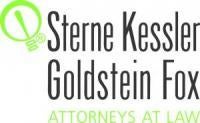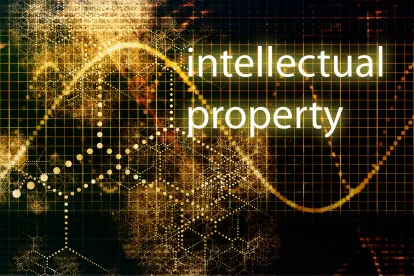In Impression Products, Inc. v. Lexmark International, Inc., No. 15-1189 (U.S. May 30, 2017), the Supreme Court fundamentally changed patent licensing in the United States by eliminating a key limitation on patent exhaustion, and eliminating the distinction between U.S. and foreign sales. Impression addressed two issues: (1) “whether a patentee that sells an item under an express restriction on the purchaser’s right to reuse or resell the product may enforce that restriction through an infringement lawsuit” (Id., Slip Op. at 1), and (2) “whether a patentee exhausts its patent rights by selling its product outside the United States, where American patent laws do not apply.” (Id. at 2.) In its decision, the Court overruled the Federal Circuit on both issues.
The ruling is expected to demystify the “cloud of uncertainty” for downstream purchasers/ licensees and end-users of patented components in the global market who risked continuing liability for infringement even after authorized sales to consumers occurred. But for other businesses, the ruling could hamper investment in R&D and innovation because of the limits placed on a patent owner’s ability to obtain fair value for its intellectual property.
Post-Sale Restrictions Do Not Avoid Patent Exhaustion
In Impression, the Supreme Court held that the sale of a patented good exhausts all patent rights in the good even where the product is sold subject to a lawful, and clearly communicated restriction on re-sale. In this case, Lexmark sold patented ink cartridges under a customer “Return Program,” that provided for a significant price discount under the condition that buyers use the cartridges only once, and refrain from transferring the spent cartridges to anyone but Lexmark. Lexmark brought suit after Impression refilled and resold spent “Return Program” cartridges.
The Supreme Court held that the “single-use/no-resale restrictions in Lexmark’s contracts with customers may have been clear and enforceable under contract law, but they do not entitle Lexmark to retain patent rights in an item that it has elected to sell.” (Id. at 5.) The Court reasoned that its decision is consistent with the “well-established exhaustion rule [that] marks the point where patent rights yield to the common law principle against restraints on alienation” (Id. at 6), and provided an example of “a shop that restores and sells used cars. The business works because the shop can rest assured that, so long as those bringing in the cars own them, the shop is free to repair and resell those vehicles. That smooth flow of commerce would sputter if companies that make the thousands of parts that go into a vehicle could keep their patent rights after the first sale.” (Id. at 7.)
The Court characterized its decision as “long held” (Id. at 8), and stated its “recent decision in Quanta Computer, Inc. v. LG Electronics, Inc. settled the matter.” (Id. at 9.) But the Quanta decision is far from clear on this point. Unlike Lexmark, Quanta involved an unrestricted license grant. Quanta, 553 U.S. 617, 636 (2008). The Impression Court characterized Quanta as involving “contracts requiring purchasers to use those processors with other parts that the company manufactured” (Impression, Slip Op. at 9), but practitioners and commentators – as well as the Court itself in Quanta – characterized those provisions as no more than notice provisions. Quanta, 553 U.S. at 636. This was particularly the case since the contracts at issue specified that breach of the notice provision would not be grounds for termination. Id. at 623-624, 636-637.
After Impression, it may be more difficult for a patentee to spread the cost of its technology among different entities in the stream of commerce, or to leverage its technology in different business silos. The Court’s suggestion—to use contract law rather than patent law to enforce post-sale restrictions—presents additional challenges not the least of which is the possible lack of privity with downstream buyers.
Even before the Court’s decision, practitioners were considering possible workarounds to avoid patent exhaustion, such as “covenant-to-sue-last” provisions. But the viability of those workarounds is unclear given the scope of the Court’s holding, as well as Federal Circuit precedent equating a covenant-not-to-sue with a patent license for purposes of patent exhaustion. See Transcore v. Electronic Transaction Consultants Corp., 563 F.3d. 1271 (Fed. Cir. 2009). It is more likely that patentees will take steps to establish privity with downstream purchasers. This may be transactionally difficult, however, and not possible for existing license agreements.
Sales Outside the United States Exhaust U.S. Patent Rights
Also in Impression, the Supreme Court held that authorized foreign sales of patented articles likewise exhaust the patentee’s U.S. patents. The Impression Court’s decision is aligned with the Supreme Court’s earlier decision in Kirtsaeng v. John Wiley & Sons, Inc., 568,U.S. 519 (2013), which held that foreign sales exhausted U.S. copyrights. Indeed, the Supreme Court cited Kirstaeng in support of its reasoning, stating that “[applying] patent exhaustion to foreign sales is just as straightforward.” (Impression, slip op. at 14) The Court was not concerned with the territorial limits of U.S. patents: “Exhaustion is a separate limit on the patent grant, and does not depend on the patentee receiving some undefined premium for selling the right to access the American market. A purchaser buys an item, not patent rights. And exhaustion is triggered by the patentee’s decision to give that item up and receive whatever fee it decides is appropriate.” (Id. at 15)
The Court’s holding may result in companies increasing foreign prices to match those in the U.S. This may be especially true with patented products that can be easily imported into the U.S., such as pharmaceutical products, consumer products and electrical components. The Court’s decision also opens the door to compulsory licenses in foreign countries, that would effectively negate US patent rights. The Court seemed to acknowledge this possible consequence but remained unconcerned by the consequences: “The patentee may not be able to command the same amount for its products abroad as it does in the United States. But the Patent Act does not guarantee a particular price, much less the price from selling to American consumers.” (Id. at 15)





 />i
/>i

